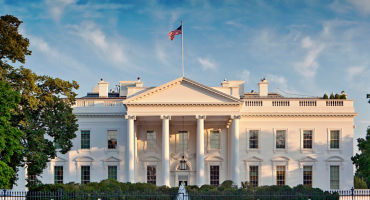While I see incentives for all sides to “manage through this,” the number of complex variables in play across the region could credibly trigger a significant geopolitical event over the next several weeks. To name a few, these include:
- Israel’s ongoing Gaza operations and the humanitarian implications;
- Rising tensions/military engagement with Hezbollah;
- Potential responses by Shiite militias in Iraq and Syria; and
- Ongoing risks to global shipping posed by the Houthis.
The risk here is an escalation cycle that neither side can effectively curtail. From a markets perspective, the key takeaway is that we have moved one step closer to the worst-case scenario of a direct and widening Iran/Israel war that brings in the US and sparks significant energy, inflation, and central bank policy implications.
Factors that give me pause about signaling an “all-clear” in the Middle East
The ongoing leadership transition in Iran means there’s a lot of behind-the-scenes maneuvering in Tehran, and therefore, less scope for Iranian leaders to look the other way if this continues to escalate.
There continues to be a real desire by some inside the Netanyahu government to address the Iran threat “once and for all.” In this line of thinking, the events of October 7 offer hardliners an unprecedented opportunity to deal a significant blow first to Hamas (a work in progress), second to Hezbollah (arrows continue to point lower here), and finally, to Iran, especially with the existential risk of Iran’s nuclear issue hovering in the background. These attacks will intensify this hawkish position.
Thus far, the Biden administration has been mostly successful in deterring these hardline approaches (including the latest developments), but that gets harder every day.
Thematic market implications
Great-power competition dynamics are running through all of this — especially with Iran as a key supplier of drones to Russia’s Ukraine war effort, and China such a critical economic and energy partner to Tehran, to say nothing of US relationships with Israel and other regional actors.
Policymakers will use these attacks as yet another data point that underscores how we’re now living through the most complex, dangerous, and unpredictable geopolitical environment in decades. This will reinforce a policy direction that favors security writ large, as well as the continuing protection and promotion of sectors deemed strategic in this deepening and increasingly global national security competition.










